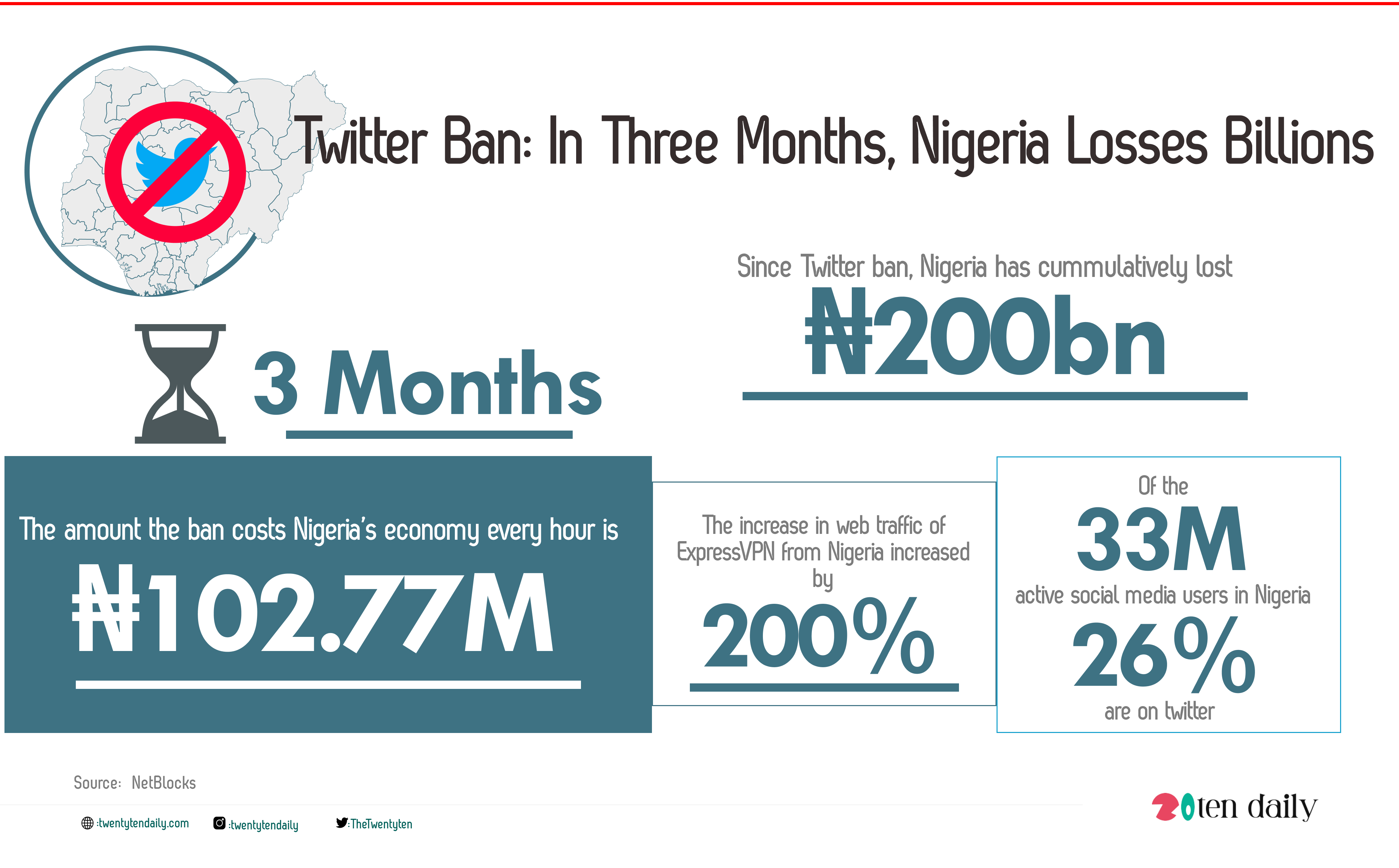Nigeria
Since the Federal government has banned the operation of Twitter in Nigeria, the country has cumulatively lost over N200 billion.
The ban which took effect in the country on June 5 has reached 3 months of shutdown.
This figure was calculated based on the NetBlocks Cost of Shutdown Tool which reported that it costs Nigeria’s economy N102.77 million ($250,600) every hour to ban Twitter.
The NetBlocks Cost of Shutdown Tool estimates the economic impact of an internet disruption, mobile data blackout or app restriction in a nation using indicators from the World Bank, International Telecommunication Union, Eurostat and U.S. Census.
The Federal Government had on June 4 announced the suspension of Twitter in Nigeria. Telecommunication companies started blocking access to Twitter on June 5, after they received a directive from the Nigerian Communications Commission to block access to Twitter.
Despite this, Twitter had posted an increased earnings for the second quarter.

The San Francisco-based company earned $65.6 million, or 8 cents per share, in the April-June quarter. That’s up from a loss of $1.38 billion, or $1.75 per share, a year earlier.
Twitter recorded $1.19 billion in revenue in Q2 2021, against the $683.4 million Twitter reported for the corresponding period of Q2 2020.
According to a report by Statista, Nigeria has about 33 million active social media users, with about 26 percent on Twitter.
Since the ban, some Nigerians have migrated to the use of Virtual Private Networks. VPN works by changing the location of devices they run on. Small and Medium-sized Enterprises have said this has not been good for their businesses
ExpressVPN said in June that it recorded an increase of over 200 per cent in web traffic from Nigeria since the Federal Government banned Twitter.
Twentyten Daily, in separate reports, had published how Nigeria losses more to the continuous twitter ban and how twitter had prompted movements through hastags in Nigeria.
Countries that banned Twitter and loses
Just like Nigeria, about 10 other countries have also restricted the access to Twitter or censored the platform.
Twitter censorship means that the platform would enforce in accordance with its Terms of Service to agree with the government or authority submission. This would include that specific content (such as a tweet) is illegal in their jurisdiction.

The countries include China, North Korea, Turkmenistan, Iran, Myanmar, Egypt, Turkey, Uganda, Pakistan and UAE.
Twitter is officially blocked in China in 2012; however, many Chinese people circumvent the block to use it. However, major Chinese companies and national media use Twitter through a government approved VPN.
Twitter was inaccessible in Egypt on January 25, 2011 during the 2011 Egyptian protests. Some news reports blamed the government of Egypt for blocking it.
In 2009, during the 2009 Iranian presidential election, the Iranian government blocked Twitter due to fear of protests being organised.
In April 2016, North Korea started to block Twitter “in a move underscoring its concern with the spread of online information”– as anyone who tries to access it is subjected to punishment.
On March 21, 2014, access to Twitter in Turkey was temporarily blocked, after a court ordered that “protection measures” be applied to the service.
As of 2018, foreign news and opposition websites are blocked in Turkmenistan, and international social networks such as Twitter are “often inaccessible”.

